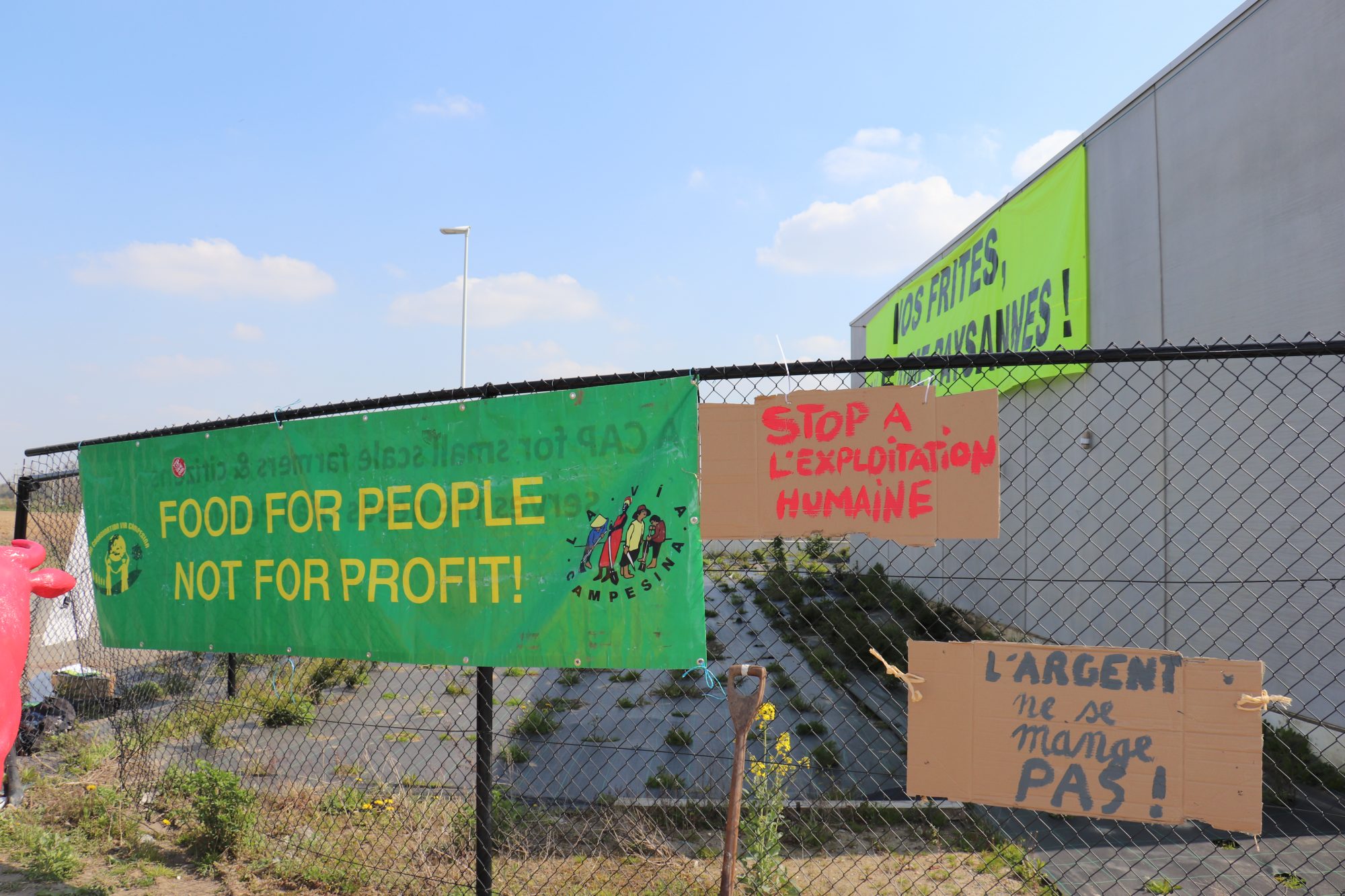ECVC demands concrete steps forward on prices, farmers’ incomes, right to land and generational renewal

4 September 2024
After seven months of intensive work, President of the European Commission Ursula von der Leyen today presented the plenary report of the Strategic Dialogue process, in which Genevieve Savigny was mandated by ECVC to participate.
For ECVC, this collective synthesis document includes positive and important progress in certain key areas of agricultural transition. However, in order to truly and successfully facilitate “economically profitable, environmentally sustainable and socially responsible agriculture, food systems and rural areas”, concrete steps must be taken to strengthen the recommendations and ensure they are further developed and implemented by the forthcoming Commission. This must be done in particular through a revision of the UTP Directive, the strengthening of the CMO in the CAP and the creation of an EU Land Directive.
ECVC welcomes the emphasis and initiatives developed in the report on a number of key areas, including:
- The need to improve the income of farmers and to ensure prices above production costs, is present throughout the report, with the possible revision of the UTP Directive. The transition of agri-food systems can only be done with farmers, by recognizing the diversity of agrarian systems in Europe and by ensuring a decent and stable income, in particular for small and medium scale farmers and farm workers. However, the need for market regulation in order to ensure fair and stable prices should have been at the core of the recommendations, and to date the necessary discussion on supply management, public stocks, and minimum support prices is lacking. We demand that, in the upcoming months, an obligation is included in the UTP directive for buyers of agricultural products to pay farmers prices that cover production costs.
- CAP subsidies support ‘towards those who need it most’, including small farms. ECVC will be particularly vigilant to ensure that all the proposed measures, such as the “bench-marking” of environmental efforts, the digitalisation of services, risk coverage or financing, are applicable to small- and medium-sized farms and do not lead to the abandonment of farms, due to the cost or complexity of the requests. Yet, for ECVC, the priority remains to strengthen the CMO chapter of the CAP so that market regulation ensures fair prices.
- Generational renewal as a key to agricultural transition. This includes the implementation of a dedicated plan, and highlights the importance of building a welcoming rural environment with services and financial resources to combat the gap between urban and rural communities. However, the document fails to recognise that Europe needs more farmers and to draw up a strategy to make this necessity a reality.
- Strengthening of public advisory systems and training, which for ECVC should focus on organic farming and agroecology because of its popularity with many young people looking for meaning in their profession.
- Proposals concerning the preservation of and access to land and the creation of an observatory. Land must be made central to the agri-food policy agenda, and the new EC must start negotiating a European Directive on Land.
However, for ECVC, the report fails to sufficiently address or include a number of the key issues for farmers and agricultural workers:
- Farmers want to work in solidarity, not in competition. Competitivity and competition logic remains central in the report’s recommendations. The EC must ensure further paradigm shift to promote cooperation and ecological and social relocation instead of the current competition and globalisation.
- European Trade Policy is a driver of low income for farmers. The report fails to recognise that FTAs and the WTO rules only serve to drive down prices as far as possible, with no regard for the costs to the wellbeing and health of farmers and citizens, nor the impact on climate and biodiversity. Therefore the EC must promote radical international trade reform towards a new trade framework based on food sovereignty and social and environmental justice.
- Food is a human right and not a commodity. EU agri-food policy must be grounded by a human rights approach, including the right to food and the rights laid out in the UN Declaration of the Rights of Peasants and other people working in rural areas (UNDROP).
- Europe needs more farmers in order to achieve the transition of agri-food systems, as small and medium-sized farmers play a key role in resolving current social, environmental, and food-related crises and in developing and maintaining vibrant rural areas.
ECVC and its members therefore remain committed to working with the EC and other EU Institutions to address these topics and further carve out a path towards the sustainable transition of agri-food systems.
This post is also available in Français.
